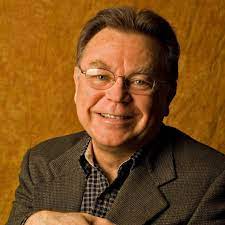You are not fifteen, or twelve, or seventeen—
You are a hundred wild centuries
And fifteen, bringing with you
In every breath and in every step
Everyone who has come before you,
All the yous that you have been,
The mothers of your mother,
The fathers of your father.
If someone in your family tree was trouble,
A hundred were not:
The bad do not win—not finally,
No matter how loud they are.
We simply would not be here
If that were so.
You are made, fundamentally, from the good.
With this knowledge, you never march alone.
You are the breaking news of the century.
You are the good who has come forward
Through it all, even if so many days
Feel otherwise. But think:
When you as a child learned to speak,
It’s not that you didn’t know words—
It’s that, from the centuries, you knew so many,
And it’s hard to choose the words that will be your own.
From those centuries we human beings bring with us
The simple solutions and songs,
The river bridges and star charts and song harmonies
All in service to a simple idea:
That we can make a house called tomorrow.
What we bring, finally, into the new day, every day,
Is ourselves. And that’s all we need
To start. That’s everything we require to keep going.
Look back only for as long as you must,
Then go forward into the history you will make.
Be good, then better. Write books. Cure disease.
Make us proud. Make yourself proud.
And those who came before you? When you hear thunder,
Hear it as their applause.
Published:
2018
Length:
Regular
Literary Movements:
Contemporary
Anthology Years:
2023
Themes:
Childhood & Coming of Age
Education & Learning
Faith & Hope
Identity
Literary Devices:
Alliteration
the repetition of the same letter or sound at the beginning of words appearing in succession
Apostrophe
an exclamatory passage in a speech or poem addressed to a person (typically one who is dead or absent) or thing (typically one that is personified)
Couplets
two lines of verse, usually in the same meter and joined by rhyme, that form a unit
Extended Metaphor
a metaphor that extends through several lines or even an entire poem
Imperative
an instruction or a command
Repetition
a recurrence of the same word or phrase two or more times

